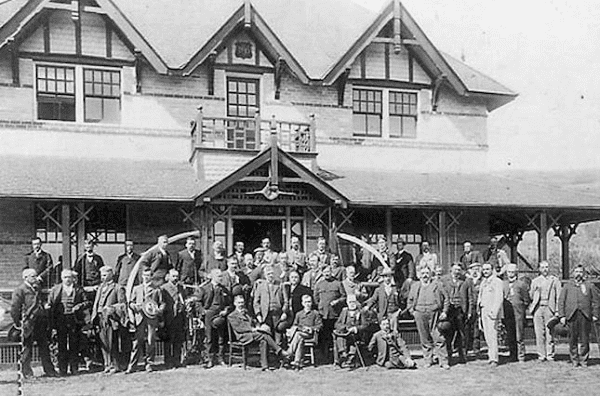Historical background of hospitality industry- The hospitality industry has a rich and diverse history that dates back centuries. It has evolved from simple accommodations and food service to a complex and global industry. Here’s a brief historical background of the hospitality industry:
- Ancient Origins: The concept of hospitality can be traced back to ancient civilizations, such as the Greeks and Romans, who had inns and taverns to accommodate travelers. These establishments provided food, lodging, and a place for social interaction.
- Medieval Inns and Taverns: During the Middle Ages in Europe, inns and taverns played a crucial role in providing lodging and sustenance to travelers, including pilgrims, traders, and nobles. These establishments were often situated along major trade routes.
- The Grand Tour: In the 17th and 18th centuries, the “Grand Tour” became popular among European aristocracy. Young men and women from affluent families would travel to different countries, often staying in luxury hotels and lodges. This marked the beginning of tourism as a leisure activity.
- Industrial Revolution: The 19th century, marked by the Industrial Revolution, saw the expansion of the railway system and the growth of hotels to cater to the needs of travelers. This period also saw the rise of luxury hotels such as The Ritz in Paris and The Savoy in London.
- 20th Century: The 20th century witnessed significant developments in the hospitality industry. The proliferation of automobiles and air travel led to a boom in the hotel and restaurant sector. Chains like Hilton, Marriott, and Sheraton emerged as major players.
- Post-World War II Era: The end of World War II saw a surge in international travel, further fueling the growth of hotels and the hospitality industry. Motels, fast-food restaurants, and roadside diners became popular along highways.
- Modern Era: The late 20th century and early 21st century have seen the globalization of the hospitality industry. The emergence of online travel agencies and booking platforms, such as Expedia and Booking.com, transformed the way people book accommodations and travel services.
- Technology and Sustainability: Recent years have seen a significant focus on technology integration, with the introduction of mobile apps, smart room controls, and contactless check-in/check-out processes. Sustainability and eco-friendly practices have also become essential considerations for many establishments.
- Diversification: The hospitality industry has diversified to include a wide range of segments, from traditional hotels and restaurants to vacation rentals, hostels, cruise lines, and event planning. It now encompasses various sectors, such as food and beverage, accommodation, travel and tourism, and event management.
- Current Challenges: The COVID-19 pandemic in 2020 posed unprecedented challenges to the hospitality industry, leading to widespread closures and significant changes in the way businesses operate. The industry continues to adapt to new safety and hygiene standards while exploring innovative solutions.
The hospitality industry has come a long way, adapting to changes in society, technology, and travel patterns. It remains a dynamic and evolving sector that plays a vital role in the global economy, providing services to millions of travelers and tourists every year.
What is Historical background of hospitality industry
The hospitality industry has a long and diverse historical background that dates back thousands of years. It encompasses a wide range of services, including accommodations, food and beverage, travel, and event planning. Here is an overview of the historical development of the hospitality industry:
- Ancient Civilizations: The roots of hospitality can be traced back to ancient civilizations such as the Greeks and Romans, where inns and guesthouses were established to provide shelter and food to travelers and traders.
- Medieval Inns and Taverns: During the Middle Ages, inns and taverns proliferated across Europe to accommodate pilgrims, merchants, and travelers. These establishments served as places for rest and sustenance along trade routes.
- The Grand Tour: In the 17th and 18th centuries, the European aristocracy popularized the “Grand Tour,” a journey through various European countries. Travelers sought luxury accommodations and fine dining during their trips.
- Industrial Revolution: The 19th century brought about the Industrial Revolution and the expansion of transportation networks, leading to the growth of hotels and restaurants to cater to the needs of travelers and businesspeople.
- 20th Century Growth: The 20th century saw significant developments in the hospitality industry, with the emergence of major hotel chains like Hilton, Marriott, and Sheraton. This period also witnessed the rise of fast-food chains and international tourism.
- Post-World War II Boom: After World War II, there was a surge in international travel, leading to the construction of modern hotels, motels, and resorts to meet the demands of a growing global tourism industry.
- Technological Advancements: The latter part of the 20th century and the 21st century have seen the integration of technology in the industry, including the use of computerized reservation systems, online booking platforms, and smart room controls.
- Sustainability and Green Practices: Environmental concerns and sustainable practices have become more prevalent in recent years, with many establishments implementing eco-friendly initiatives and promoting responsible tourism.
- Diversification: The hospitality industry has diversified to include various segments, such as boutique hotels, vacation rentals (e.g., Airbnb), hostels, cruise lines, event planning, and more.
- Challenges and Adaptation: The industry has faced numerous challenges, including economic downturns, natural disasters, and the COVID-19 pandemic, which has prompted significant changes in operations, safety protocols, and business models.
Throughout its history, the hospitality industry has evolved and adapted to changing societal norms, technologies, and economic conditions. It continues to play a vital role in the global economy, providing services and experiences to travelers, tourists, and event attendees.
Who is Required Historical background of hospitality industry
The historical background of the hospitality industry refers to the development and evolution of the industry over time, including its origins, key milestones, and changes that have occurred throughout history. It encompasses the growth of services related to accommodations, food and beverage, travel, and event planning.
The historical background of the hospitality industry includes various aspects, such as the establishment of inns and taverns in ancient civilizations, the rise of luxury accommodations during the Grand Tour in the 17th and 18th centuries, the impact of the Industrial Revolution, the expansion of hotel chains in the 20th century, and the ongoing developments in technology and sustainability in the modern era.
If you have specific questions or need more information about a particular period or aspect of the historical background of the hospitality industry, please feel free to ask, and I’ll provide additional details.
When is Required Historical background of hospitality industry
The historical background of the hospitality industry encompasses a wide range of historical periods and developments. It is not tied to a specific date or timeframe. Instead, it covers the evolution of the industry over centuries, from ancient civilizations to the modern era. The development of the hospitality industry is a complex and ongoing process, influenced by various historical events, technological advancements, and societal changes.
If you have a specific question or would like to know more about a particular aspect of the historical background of the hospitality industry, please provide more details, and I’ll be happy to assist you with the information you’re seeking.
Where is Required Historical background of hospitality industry

The historical background of the hospitality industry is not located in a physical place but rather a concept that spans across different regions and countries. It refers to the historical development and evolution of the industry over time, encompassing various geographic locations where hospitality services have been provided.
The historical background of the hospitality industry can be traced to different parts of the world, including ancient civilizations in Europe, Asia, and the Middle East, which had their own traditions of offering accommodations and food to travelers. It has evolved over time and is not confined to a specific location.
If you have a specific question or need information related to the historical background of hospitality in a particular region or era, please provide more details, and I’ll be happy to assist you further.
How is Required Historical background of hospitality industry
The historical background of the hospitality industry is typically described in terms of its development and evolution over time. Here’s a general outline of how the historical background of the hospitality industry can be explained:
- Origins and Ancient Civilizations: The hospitality industry has its origins in ancient civilizations, where inns, taverns, and guesthouses provided travelers with accommodations and food. This concept existed in various forms across different cultures.
- Medieval and Middle Ages: During the Middle Ages, inns and taverns proliferated, serving as rest stops for pilgrims and travelers. These establishments played a crucial role in providing lodging and sustenance along trade routes.
- The Grand Tour: In the 17th and 18th centuries, the European aristocracy popularized the “Grand Tour,” a journey through various European countries. Travelers sought luxury accommodations and fine dining during their trips.
- Industrial Revolution: The 19th century saw the expansion of transportation networks and the growth of hotels and restaurants to cater to the needs of travelers and businesspeople.
- 20th Century Growth: Major hotel chains, including Hilton, Marriott, and Sheraton, emerged during the 20th century. This period also witnessed the rise of fast-food chains and international tourism.
- Post-World War II Boom: After World War II, international travel surged, leading to the construction of modern hotels, motels, and resorts to meet the demands of a growing global tourism industry.
- Technological Advancements: In the latter part of the 20th century and the 21st century, technology played a significant role in the industry, with computerized reservation systems, online booking platforms, and smart room controls.
- Sustainability and Green Practices: In recent years, environmental concerns and sustainable practices have become more prevalent, with many establishments implementing eco-friendly initiatives and promoting responsible tourism.
- Diversification: The industry has diversified to include various segments, such as boutique hotels, vacation rentals (e.g., Airbnb), hostels, cruise lines, event planning, and more.
- Challenges and Adaptation: The industry has faced various challenges, including economic downturns, natural disasters, and the COVID-19 pandemic, leading to significant changes in operations, safety protocols, and business models.
The historical background of the hospitality industry is a story of growth, adaptation, and changing consumer demands over the centuries. It’s a dynamic and evolving industry that plays a crucial role in the global economy, providing services and experiences to travelers, tourists, and event attendees.
Case Study on Historical background of hospitality industry
The Development of the Modern Hotel Industry
Introduction: The history of the modern hotel industry provides valuable insights into the evolution of the hospitality sector. This case study focuses on the transformation of the hotel industry from its humble origins to its global prominence today.
Historical Background: The concept of providing lodging and food for travelers dates back thousands of years, with roots in ancient civilizations such as Greece and Rome. However, the modern hotel industry took shape during the 18th and 19th centuries.
Key Milestones:
- 18th Century – The Grand Tour: The emergence of the “Grand Tour” in the 18th century, which involved European nobility traveling to different countries, fueled the need for luxurious accommodations. This marked the rise of upscale hotels and inns in prominent European cities.
- 19th Century – Industrial Revolution: The 19th century saw the growth of the hotel industry with the expansion of transportation networks, particularly railways. This made it easier for people to travel, leading to the construction of hotels in key locations along major routes.
- Late 19th Century – Hotel Chains: The late 19th century marked the rise of hotel chains. For example, Conrad Hilton purchased his first hotel in 1919, which eventually led to the establishment of the Hilton hotel chain. This era saw the formation of other major hotel brands.
- 20th Century – Global Expansion: The 20th century witnessed the global expansion of hotel chains. International tourism grew significantly, and iconic hotels like The Ritz in Paris and The Waldorf Astoria in New York City became synonymous with luxury and hospitality.
- Late 20th Century – Technological Advancements: The late 20th century brought technological innovations such as computerized reservation systems and the use of computers for managing hotel operations. These advancements streamlined hotel management and improved the guest experience.
- 21st Century – Online Booking Platforms: The 21st century has seen the rise of online booking platforms and mobile apps, which have transformed how guests book accommodations. Platforms like Expedia, Booking.com, and Airbnb have disrupted traditional hotel business models.
Challenges and Adaptations:
- Economic Downturns: The hotel industry has weathered economic downturns and recessions, adapting through cost-cutting measures and innovative marketing strategies to maintain profitability.
- Environmental Sustainability: Increasingly, hotels have focused on sustainability practices, implementing energy-efficient solutions, waste reduction, and eco-friendly initiatives.
- Global Crises: The COVID-19 pandemic in 2020 posed an unprecedented challenge, leading to widespread closures and the adoption of strict safety and hygiene measures. Hotels adapted by introducing contactless check-in/check-out, enhanced cleaning protocols, and flexible cancellation policies.
Conclusion: The historical background of the hospitality industry, with a specific focus on the development of the modern hotel industry, illustrates a remarkable journey from modest inns and taverns to the global hospitality conglomerates and technologically advanced establishments we see today. This evolution showcases the industry’s ability to adapt to changing times and customer demands while emphasizing the importance of innovation, sustainability, and resilience in the face of challenges.
White paper on Historical background of hospitality industry
Title: Historical Background of the Hospitality Industry
I. Executive Summary
- Brief overview of the key points covered in the white paper.
II. Introduction
- Definition of the hospitality industry.
- The significance of understanding its historical background.
III. Ancient Origins of Hospitality
- Overview of early forms of hospitality in ancient civilizations, including Greece, Rome, and the Silk Road.
- The role of inns, taverns, and guesthouses in providing accommodations and food for travelers.
IV. Medieval and Middle Ages
- The development of inns and taverns during the Middle Ages.
- The significance of these establishments for travelers and trade routes.
V. The Grand Tour and Luxury Accommodations
- The concept of the “Grand Tour” and its impact on the development of upscale accommodations.
- How this era marked the beginning of luxury travel and accommodations.
VI. Industrial Revolution and Transportation Expansion
- The influence of the Industrial Revolution on the hospitality industry.
- The role of transportation networks, particularly railways, in the growth of hotels.
VII. The Emergence of Hotel Chains
- The formation of major hotel chains like Hilton, Marriott, and others.
- How hotel chains changed the landscape of the industry.
VIII. Global Expansion and Iconic Hotels
- The 20th-century growth of international tourism.
- The emergence of iconic hotels such as The Ritz and The Waldorf Astoria.
IX. Technological Advancements
- Technological innovations in hotel management and guest experience.
- The impact of computerized reservation systems, internet booking, and smart room controls.
X. Sustainability and Green Practices
- The growing importance of environmental sustainability in the hospitality industry.
- Examples of eco-friendly initiatives and responsible tourism practices.
XI. Challenges and Adaptations
- The industry’s response to economic downturns and recessions.
- Adaptations to global crises, such as the COVID-19 pandemic.
XII. Conclusion
- A summary of key takeaways from the historical background of the hospitality industry.
- Reflection on how the industry has evolved and continues to adapt.
XIII. References
- Citations for sources and references used in the white paper.
XIV. Appendices (Optional)
- Additional information, charts, graphs, or supplementary materials.
Please note that creating a comprehensive white paper typically involves extensive research, data collection, and analysis. If you decide to create a full white paper on this topic, it may be helpful to consult academic and industry sources to provide a thorough and well-supported discussion of the historical background of the hospitality industry.





